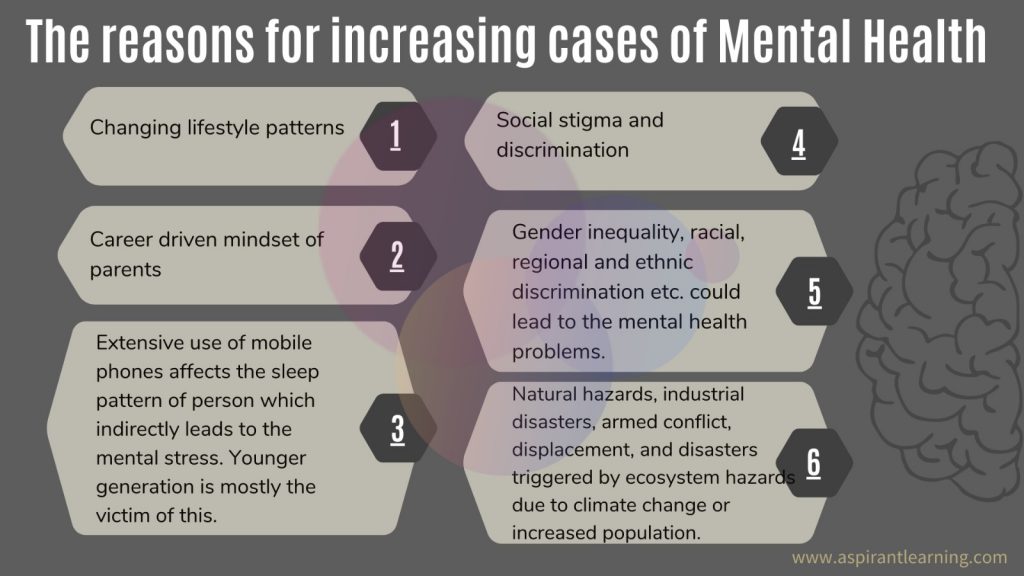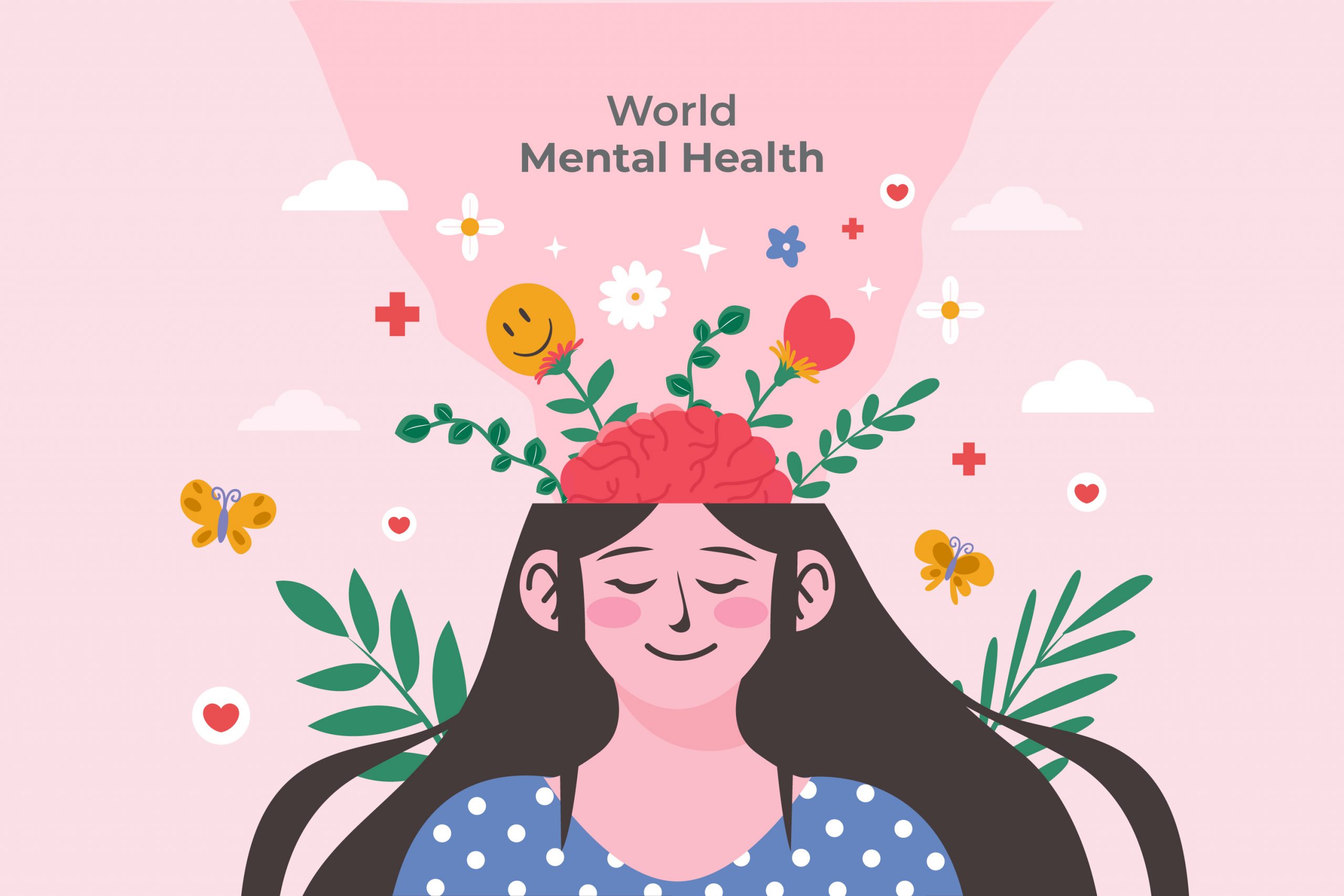News Highlight
We need an urgent and well-resourced ‘whole-of-society’ approach to protecting, promoting and caring for the mental health of our people.
Key Takeaway
- Every other day, we wake up to a terrible headline about a young person who committed suicide.
- Compared to other countries at the same socioeconomic level, India has one of the highest suicide rates.
- According to the World Health Organization, India’s suicide rate in 2019 was 12.9/1,000,000, higher than the regional average of 10.2 and the global average of 9.0.
- Suicide has surpassed car accidents as the leading cause of death among those aged 15 to 29 in India.
Mental Health
- About
- Mental health is a condition of mental well-being that allows people to cope with life’s stressors, realise their strengths, study and work effectively and contribute to their community.
- It is an essential component of health and well-being that underpins our individuality.
- Additionally, collective capacity to make decisions, form connections and shape the world in which we live.
- Mental health is a fundamental human right.
- It is also essential for personal, community, and socioeconomic growth.
Why is Mental Health Important?
- Stigma to seek help
- The astonishing estimates exclude millions of people directly or indirectly impacted by the difficulty.
- As well as those who endure deep-rooted stigma, often preventing them from seeking help.
- Lack of awareness
- A lack of knowledge, understanding, self-diagnosis, and stigma exacerbates this increased difficulty in coping with mental health concerns.
- Psycho-social factors
- Institutions such as gender, race, and ethnicity are partly to blame for mental health issues.
- Post-Treatment gap
- There is a need for adequate rehabilitation of mentally ill people following treatment, which is currently lacking.
- The rise in Severity
- Economic misery necessitates special treatment because mental health issues often worsen during economic downturns.
What are the impacts of poor mental health?
- It is the leading cause of disability worldwide.
- It is strongly related to poverty, creating a vicious cycle of disadvantage.
- People who live in poverty are more likely to suffer from mental health problems.
- On the other hand, people with severe mental health disorders are more likely to slip into poverty due to job loss and increasing healthcare costs.
- Stigma and discrimination frequently erode their social support networks.
- This feeds the terrible cycle of poverty and mental illness.
Government Policy initiatives
- National Mental Health Program (NMHP)
- The government has been implementing the NMHP since 1982 to address the enormous burden of mental diseases and the lack of skilled experts in the mental health field.
- Mental HealthCare Act 2017
- It ensures that every affected person has access to mental healthcare and treatment from government-run or support services.
- Rights of Persons with Disabilities Act, 2017
- The Act recognises mental illness as a handicap and attempts to improve Disabled People’s Rights and Entitlements.
- Furthermore, to create an effective system for ensuring their empowerment and social inclusion.
- Manodarpan Initiative
- Manodarpan Project An effort under the Atmanirbhar Bharat Abhiyan aims to give students psycho-social support for their mental health and well-being.

Conclusion
- The most severe issue nowadays is that identifying a mental disease is frequently followed by denial and hesitancy to seek care.
- Despite its immense social burden, mental health is shrouded in stigma, discrimination, and fear.
- As a result, there is a need to educate people about the fact that mental illness is more frequent than most people realise.
- It is the obligation of society to raise awareness of the mental illness and encourage people to talk about it.
Pic Courtesy: freepik
Content Source: Indian Express



